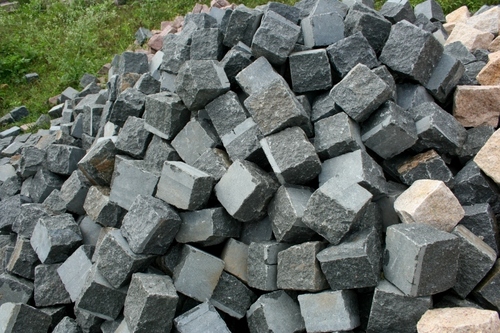A Step-by-Step Guide to Buying and Exporting Granite from Angola
A Step-by-Step Guide to Buying and Exporting Granite from Angola
Granite is one of the most popular building materials in the world. It’s strong, durable and aesthetically pleasing, making it a great choice for a variety of applications. Buying and exporting granite from Angola is a great way to get access to quality materials at competitive prices. But before you start, it’s important to understand the process, from finding the right supplier to navigating international shipping regulations. This step-by-step guide will walk you through the process of buying and exporting granite from Angola, so you can reap the benefits of a successful transaction. With a bit of research and preparation, you’ll be on your way to importing granite from Angola in no time.
Finding the right granite supplier in Angola
Before you start buying and exporting granite from Angola, you’ll need to find the right suppliers. The best way to do this is to talk to other importers or exporters who’ve worked with Angolan granite suppliers. You can also use online resources, such as importer directories, to find companies that import granite from Angola. It’s important to do your research, so you can find a company that can meet your needs and make the buying process as smooth as possible. Keep in mind that the more research you do upfront, the less headache you’ll have when it comes time to make your purchase. Ideally, you’ll want to work with a supplier that is: Collaborative: You and your supplier should be open to talking about granite, your project, and any concerns you have. Transparent: Your supplier should be upfront about costs, inventory, and policies. You shouldn’t have to ask a lot of questions to get the information you need.
Understanding the costs of buying and exporting granite
The price of your granite shipment depends on a variety of factors, including the type of granite and the supplier you work with. Granite is often priced based on a per ton rate, so you can calculate the price of your shipment based on the weight of the shipment. To calculate the price of your granite shipment, you’ll need to know a few things: – The weight of the shipment – The size of the shipment (i.e. the length, width and height of the shipment) – The type of shipment (FOB, CFR, etc.) – The destination country – The destination port The cost of your shipment will also depend on the logistics of buying and exporting granite from Angola. You’ll have to factor in shipping costs, customs duties, and other expenses, such as third-party services, like a customs broker or freight forwarder. The more research you do upfront, the easier the process will be. It’s important to talk to potential suppliers to get a better idea of the costs involved.
Navigating Angolan laws and customs regulations
Before you import granite, you should familiarize yourself with the laws and regulations governing the import process in Angola. To do this, start by visiting the websites of the Angolan government and the government agencies that deal with trade. You can also speak with your supplier to get the details on how they handle the import and export process. Once you have a good idea of how things work, you can start to prepare for the process. You should get an Angolan commercial invoice to accompany your shipment. You may also have to prove that you’re the exporter by providing a certificate of origin. You can use your exporter directory to find out if you need an import license for your shipment. You may also need to provide a certificate of quality assurance, which you can get from an independent laboratory.
Preparing for international shipping
Before you start buying and exporting granite from Angola, you’ll want to prepare for shipping. This includes choosing a shipping company and preparing the necessary documents and certifications. You can work with a shipping company to arrange your shipment, or you can use a customs broker, which is a third-party service. Using a customs broker is often the easiest and most cost-effective way to go. The most important thing to keep in mind when preparing for shipping is documentation. You’ll need to have the following information on hand: – Complete details on your shipment, including the nature of the goods, the quantity of the goods, and the gross weight. – Commercial invoice: This is a document that shows the price, seller and buyer information, and other details about the shipment. – Certificate of origin: This is a document that verifies that the goods were produced in your country of origin.
Paying for your granite shipment
Once you’ve found a supplier and selected a shipment, you’ll want to arrange payment. This can depend on the method of payment you and your supplier have agreed on. The most common forms of payment are letters of credit, cash payments, and payment by bank transfer. Letters of credit: An irrevocable letter of credit is generally accepted as the best method of payment when importing goods. It’s a form of collateral that is held by a bank on your behalf to guarantee payment. If you issue a letter of credit, your supplier will be able to claim the payment once they’ve sent the goods out. Cash payments: This is the most common method of payment, but it’s also the riskiest. If you make a cash payment, you are responsible for covering the costs if there’s a dispute. Payment by bank transfer: If you decide to pay by bank transfer, you’ll want to make sure the payment is traceable and that your supplier has a bank account. This is a good option for larger shipments.
Tracking the progress of your granite shipment
As soon as you’ve shipped your granite, you should start tracking its progress. You can do this by contacting your shipping company or using online shipping tools. If you use a third-party service, make sure they track your shipment. Granite is a heavy and durable material, so it doesn’t often get lost. But it’s important to stay on top of your shipment and know the status at all times. This will help you avoid delays, extra costs, and any other issues that may pop up during the process. It’s also important to keep your supplier informed about the status of your shipment. This will ensure your supplier knows what’s happening and you don’t have any miscommunications.
Ensuring compliance with international standards
Before you import granite from Angola, you should make sure it meets all required international standards. The best way to do this is to hire a third-party inspector to review your shipment. You can get quotes from different inspection companies to find the best option for you. Once you’ve hired an inspector, they can review your shipment and make sure it meets all standards, such as those for pesticides, food safety, or other commodities. It’s important to note that you should pay for the inspection upfront, and you should request a copy of the inspector’s report. This will give you peace of mind and help you avoid unnecessary delays in the process.
Dealing with potential risks and challenges
There are a few potential challenges you’ll want to prepare for when buying and exporting granite from Angola. The first is dealing with the distance between Angola and your country of destination. Granite is a heavy material, so it can take a long time to ship. You should expect to wait up to six months for your shipment. Another potential challenge is currency fluctuations. You’ll want to take a look at the current exchange rates and see if you can get a better deal. Finally, there is a chance your shipment could be delayed due to weather or other unforeseen factors. It’s best to be prepared for these challenges before you start your transaction. You can do this by talking to your supplier and being upfront about your expectations.
Conclusion
Granite is a great material for a variety of applications. It’s strong, durable, and aesthetically pleasing, making it a popular choice in construction materials. Buying and exporting granite from Angola is a great way to get access to quality materials at competitive prices. This guide will walk you through the process of buying and exporting granite from Angola, so you can reap the benefits of a successful transaction. With a bit of research and preparation, you’ll be on your way to importing granite from Angola in no time.








LEAVE A COMMENT
You must be logged in to post a comment.